The job market is crying for reforms

"Will I find a good job after I graduate?" This is the most pressing concern for more than 6.5 lakh university graduates who enter the job market in Bangladesh every year. According to a 2019 World Bank report, one in three graduates remains unemployed one or two years after graduation. Around 20 lakh young people join the job market annually, and they do not fare much better. Most, if not all, find employment in the informal sector, which is insecure, poorly paid, and lacks social protection. In fact, only one in five workers are in wage employment, and less than 40 percent of them have a written contract. Finding a decent job in present day Bangladesh is a significant challenge, which is worrying in a country where 65.53 percent of the population falls within the working age bracket (15-64 years), according to the 2022 census. The number of unemployed people in the country stands at more than 26 lakh as of 2023, per the Bangladesh Bureau of Statistics (BBS) data.
Creating new jobs requires increased investments and the establishment of new businesses. However, despite steady economic growth over the past decade, investment in Bangladesh remains lower than that of its regional peers. The public investment to GDP ratio for infrastructure and social services stood at 7.32 percent in FY2021, slightly rising to 7.53 percent in FY2022, but then dropping to 6.77 percent in FY2023. While public spending on infrastructure, especially megaprojects, has increased, it has not significantly attracted private investments, whether local or foreign. The private investment to GDP ratio was 25.25 percent in FY2019, dropped sharply to 20.24 percent the following year, and then fluctuated, reaching 23.70 percent in FY2021, 24.51 percent in FY2022, 24.18 percent in FY 2023, and 23.51 percent in FY2024, according to the latest BBS data. Bangladesh is also lagging in attracting foreign direct investment (FDI). In FY2023, the country received around $3.2 billion in FDI, which amounted to only around one percent of GDP—one of the lowest rates in Asia.
Successive governments have claimed to prioritise investment promotion, yet the ground reality tells a different story. Industry experts point out gaps in both the comprehensiveness of policies and their implementation, especially concerning the private sector and investors. Bureaucratic hurdles frequently frustrate business operations, with challenges such as excessive red tape, inadequate infrastructure, inconsistent energy supply, corruption, underdeveloped funds and capital market, a complicated tax system, and delays in decision-making. Hidden costs related to policies, procedures, laws and infrastructure further inflate the cost of doing business. These obstacles particularly hinder small and medium-sized enterprises (SMEs), which are crucial for job creation, from growing and scaling up.
While schools and colleges worldwide emphasise soft skills such as teamwork, problem-solving, critical thinking, communication, and decision-making, Bangladesh's education system remains outdated. This gap results in employers' reluctance to hire graduates from local institutions, worsening unemployment rates. By improving collaboration between educational institutions and industries, and by aligning training programmes with market requirements, we can bridge this gap and create a more job-ready workforce.
Promises from successive governments to make Bangladesh a business-friendly country and create jobs for all have largely been unfulfilled. Corruption, injustice, and a lack of meaningful reform have plagued the country for far too long. A turning point seemed to arrive on August 5, 2024, when the government of former Prime Minister Sheikh Hasina fell, and Nobel laureate Muhammad Yunus took charge of the interim government. Prof Yunus, known for his visionary approach to social and economic change, has called for a break from the rigid, outdated political practices holding the country back. His pledge to create a "new Bangladesh," driven by creativity, public interest, and genuine reforms, has sparked hope among the citizens.
This interim period presents a unique opportunity for Prof Yunus and his team to lay the groundwork for a truly business-friendly Bangladesh. Tackling the issues mentioned earlier in a sustainable manner, they must develop policies that foster an environment conducive to economic growth, social progress, and environmental sustainability. However, setting the right policies is only part of the solution; they also need to collaborate with the private sector, educational institutions, and international organisations to build a comprehensive strategy for job creation. There are several critical areas that require attention. First, public sector reforms are essential. Jobs in this sector must be allocated based on merit, free from political interference. Implementing transparent hiring processes can help restore public confidence in government employment.
Second, an overhaul of the education system is crucial to align it with market demands. Currently, the curriculum is disconnected from industry needs. While schools and colleges worldwide emphasise soft skills such as teamwork, problem-solving, critical thinking, communication, and decision-making, Bangladesh's education system remains outdated. This gap results in employers' reluctance to hire graduates from local institutions, worsening unemployment rates. By improving collaboration between educational institutions and industries, and by aligning training programmes with market requirements, we can bridge this gap and create a more job-ready workforce.
Third, promoting entrepreneurship is vital. The government should ease access to finance, reduce bureaucratic hurdles, and offer incentives for startups and SMEs. A business-friendly environment—marked by reduced red tape, improved credit access, and minimal interference—will drive growth in these sectors and expand job creation.
Fourth, diversifying the manufacturing and services sectors with a focus on expanding exports and attracting FDI could generate millions of jobs. To boost investment inflows, the interim government must address the high cost of doing business and implement policies that safeguard the rights of enterprises, workers, and consumers. Furthermore, ensuring a stable political environment is crucial to attract both domestic and foreign investment.
Finally, job creation efforts must be inclusive, targeting both urban and rural areas. In rural regions, where many depend on agriculture, diversifying the economy through agro-processing and rural SMEs can absorb the underemployed workforce.
While the current situation presents numerous challenges, Chief Adviser Prof Yunus is uniquely positioned to reshape Bangladesh's economic future. His extensive network of global connections, including world leaders, international organisations and influential policymakers give him the leverage needed to promote Bangladesh as an investment hub. By advocating for increased imports of Bangladeshi goods and attracting investments in critical sectors like manufacturing, tourism, infrastructure, technology, and power, the chief adviser can facilitate large-scale job creation and economic opportunities for the people of the country. This influx of foreign capital is not just an economic necessity, but also crucial for the broader social and economic stability of the country.
Abu Afsarul Haider is an entrepreneur. He can be reached at [email protected].
Views expressed in this article are the author's own.
Follow The Daily Star Opinion on Facebook for the latest opinions, commentaries and analyses by experts and professionals. To contribute your article or letter to The Daily Star Opinion, see our guidelines for submission.
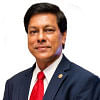
 For all latest news, follow The Daily Star's Google News channel.
For all latest news, follow The Daily Star's Google News channel. 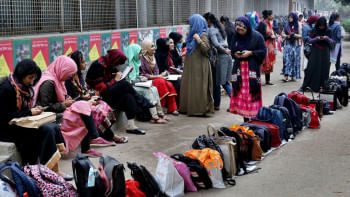



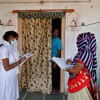
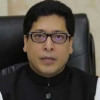

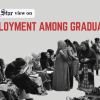



Comments